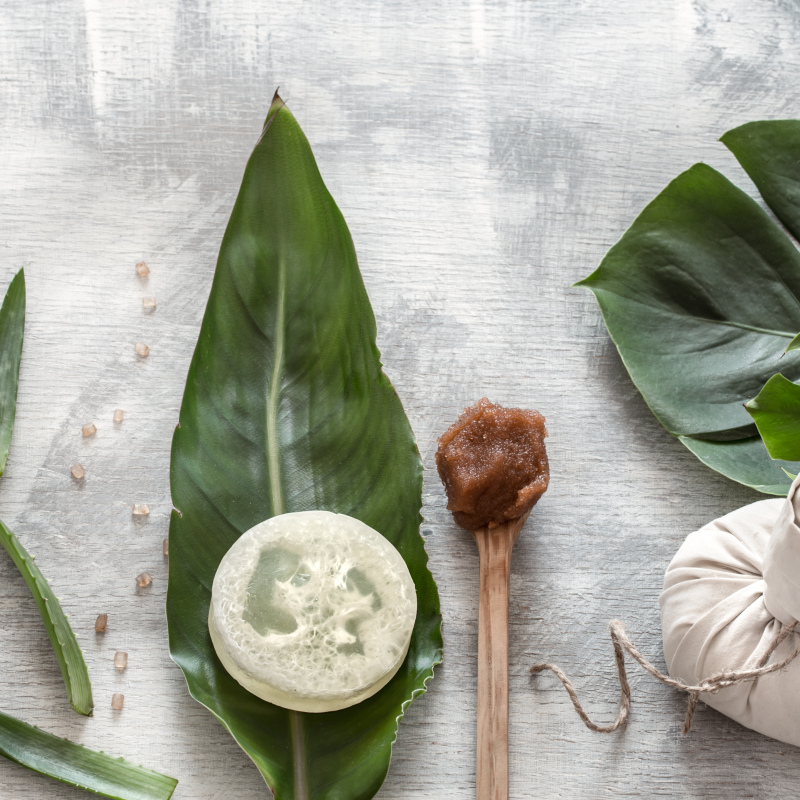
The natural cosmetics certificate is a certification issued by independent and competent certification bodies that confirms whether the ingredients used in cosmetic products comply with the principles of naturalness. This certificate demonstrates that both the content of the product and its entire production process adopt an eco-friendly, health-safe, and ethically appropriate approach. With the rapid growth of the cosmetics industry, thousands of products on the market carry the label "natural." However, determining whether these products truly contain natural ingredients is not always possible by simply reading the label.
At this point, the natural cosmetics certificate not only ensures consumer confidence but also officially certifies that the products meet specific quality and sustainability criteria. These certificates are important for preventing unfair competition in the market and for elevating the concept of "clean content" beyond being a mere marketing strategy. Certified products are reviewed and approved in many aspects, such as traceability of ingredients, environmentally friendly production processes, cruelty-free testing, and the use of recyclable packaging.
Which Products Are Required to Obtain a Natural Cosmetics Certificate?
Although the natural cosmetics certificate is not legally mandatory, many manufacturers consider it a necessary quality standard due to changing consumer expectations and market dynamics. Especially with the inclusion of organic agricultural products in the cosmetics sector, the natural origin of raw materials, and the consumers' desire to avoid chemical ingredients have increased the importance of such certifications.
The natural cosmetics certificate applies to products made with botanical, mineral, or ethically obtained animal-based ingredients and that do not contain any synthetic additives. These products are evaluated not only based on their ingredient content but also on factors such as testing procedures, packaging methods, transparency in the supply chain, and the environmental impact of the production facility.
The product groups most suitable for obtaining a natural cosmetics certificate include:
- Facial care products: Toners, cleansers, moisturizers, facial serums, and night creams.
- Body care products: Shower gels, body lotions, scrubs, and body oils.
- Hair care products: Natural shampoos, conditioners, hair oils, masks, and serums.
- Soaps and cleansers: Handmade natural soaps and plant-based liquid cleansers.
- Baby care products: Baby shampoos, diaper rash creams, baby oils, and soaps with gentle formulas.
- Makeup products: Lipsticks, blushes, foundations, and mascaras that come into contact with the skin.
- Aromatherapy products: Essential oils, treatment serums, and natural essences.
In order for these products to obtain a natural cosmetics certificate, the majority of their content must be naturally sourced, must not be tested on animals, and must not contain synthetic preservatives, fragrances, or colorants. In addition, packaging must be made from eco-friendly and recyclable materials, and the production process must be organized in a way that minimizes environmental impact.
What Are the Criteria for Obtaining a Natural Cosmetics Certificate?
For natural cosmetic products to be certified, the naturalness of the ingredients alone is not sufficient. The certification process is based on a comprehensive evaluation system that covers every stage of production. Companies seeking certification are expected to document many processes from manufacturing to packaging, remain open to inspection, and maintain transparency in all stages.
The main criteria for obtaining a natural cosmetics certificate are as follows:
- Ingredient Naturalness: All active and auxiliary substances used in the product must be derived from plant, animal, or mineral sources; genetically modified organisms (GMOs), synthetic fragrances, silicones, parabens, and additives like SLS/SLES must not be used.
- Production Procedures: Production processes are evaluated for their environmental impact. Compliance with sustainability principles is essential in matters such as energy efficiency, water use, waste management, and carbon emissions.
- Ban on Animal Testing: No animal testing must be conducted at any stage of the process, and the products must be certified as cruelty-free.
- Packaging and Labeling: Packaging materials must be recyclable or biodegradable; label information must not include misleading or exaggerated claims. Actual content ratios must be clearly stated.
- Traceability and Supply Chain: The sources of raw materials must be documented and traceable, and a supply chain that respects nature and human rights must be preferred.
During the certification process, companies are required to provide all ingredient lists, certificates of raw materials, production records, and documents such as GMP (Good Manufacturing Practices). If necessary, on-site inspections at the production facility are conducted. Additionally, some institutions also consider the product's organic content ratio. In such cases, products seeking organic certification must consist primarily of ingredients sourced from certified organic agriculture.
How Does the Certification Process Work and Which Institutions Issue It?
Manufacturers wishing to obtain a natural cosmetics certificate apply to certification bodies by submitting detailed information about their products and processes. The application process consists of several steps determined by the authorized institution. During the process, both documentation is reviewed and on-site inspections may be conducted. Once all evaluations are completed, the certificate is issued and its validity is monitored through annual audits.
In general, the certification process includes the following steps:
- Pre-Application: The company notifies which products it wants to certify and completes the relevant form.
- Document Review: Product contents, the origin of raw materials, and production protocols are examined by technical experts.
- Facility Inspection: The institution evaluates environmental and hygienic conditions at the production facility. (This may not be mandatory in all cases.)
- Sample Testing: If deemed necessary, product samples are taken and tested in independent laboratories.
- Approval and Certification: If all criteria are met, a certificate is issued and permission for related usage is granted.
- Annual Renewal: The certificate is generally valid for 12 months. At the end of this period, it is renewed through another inspection.
